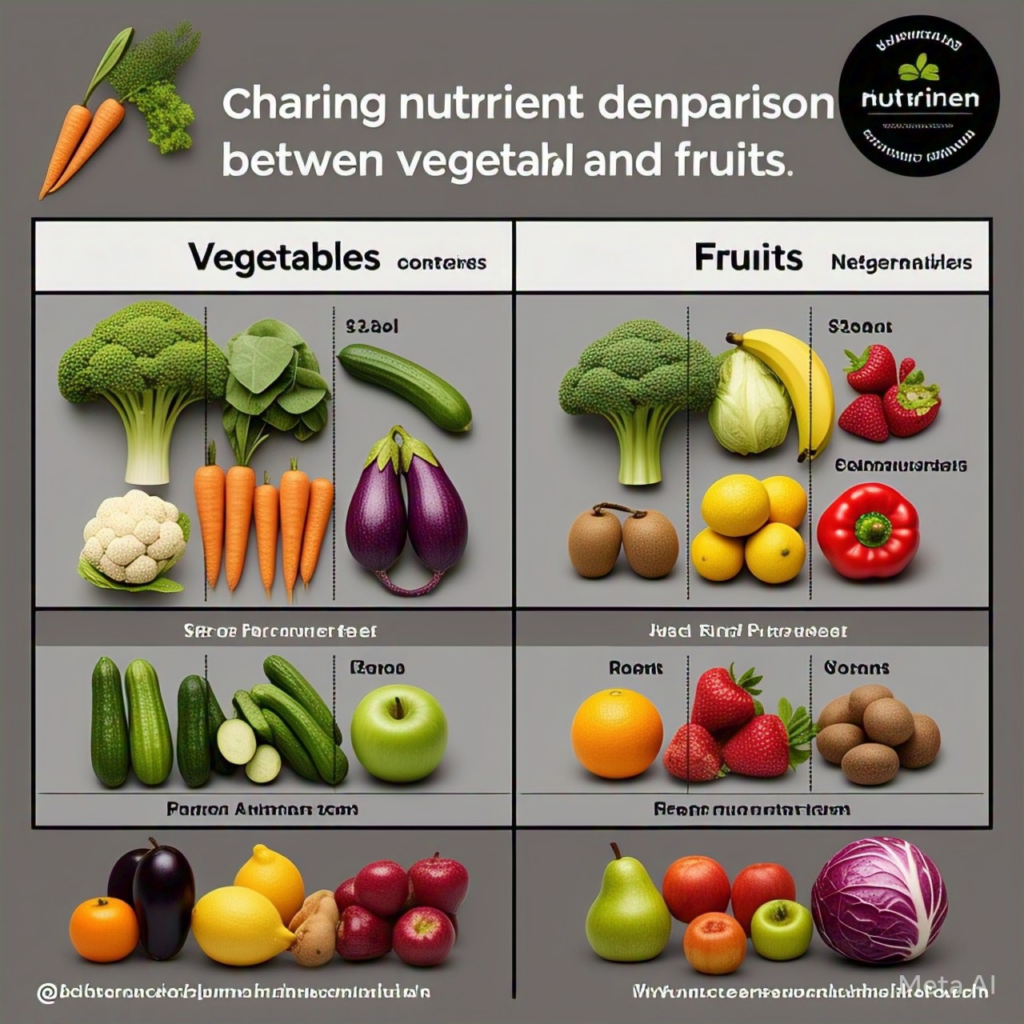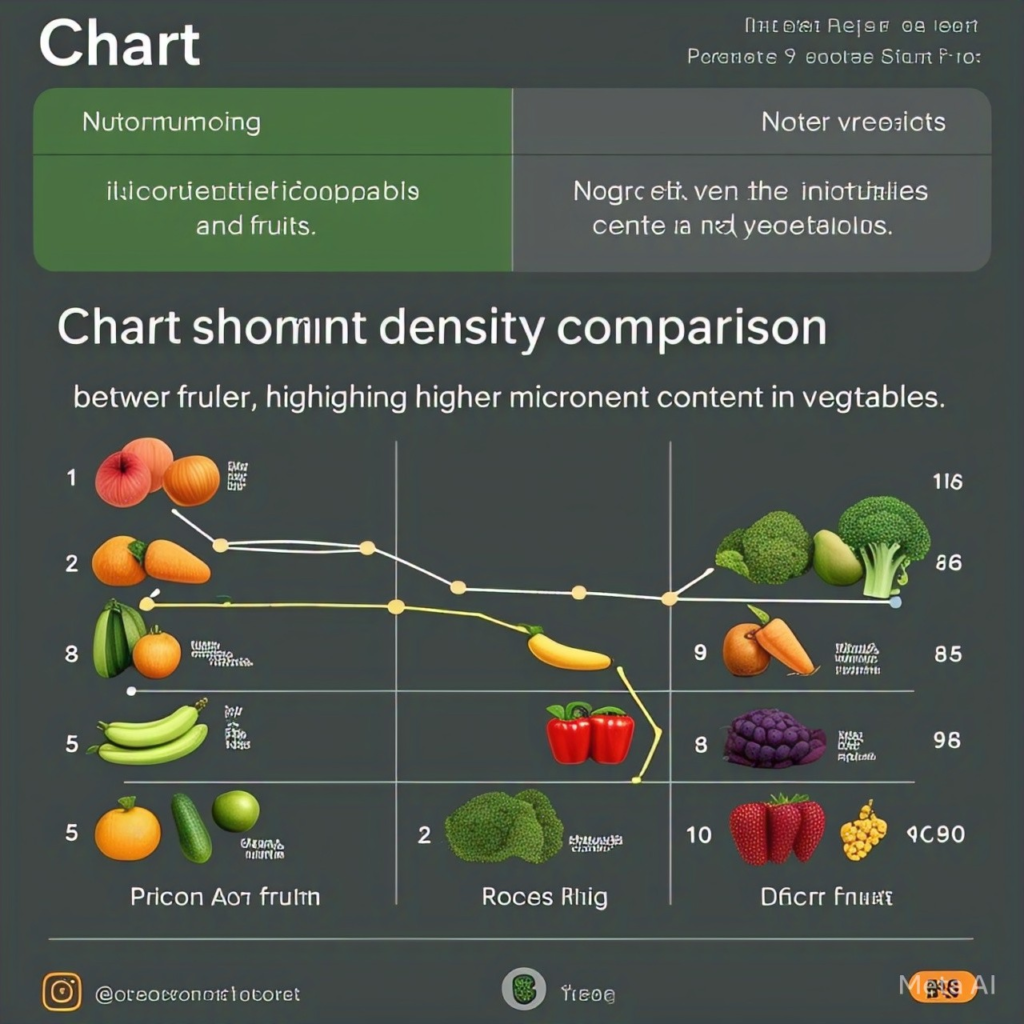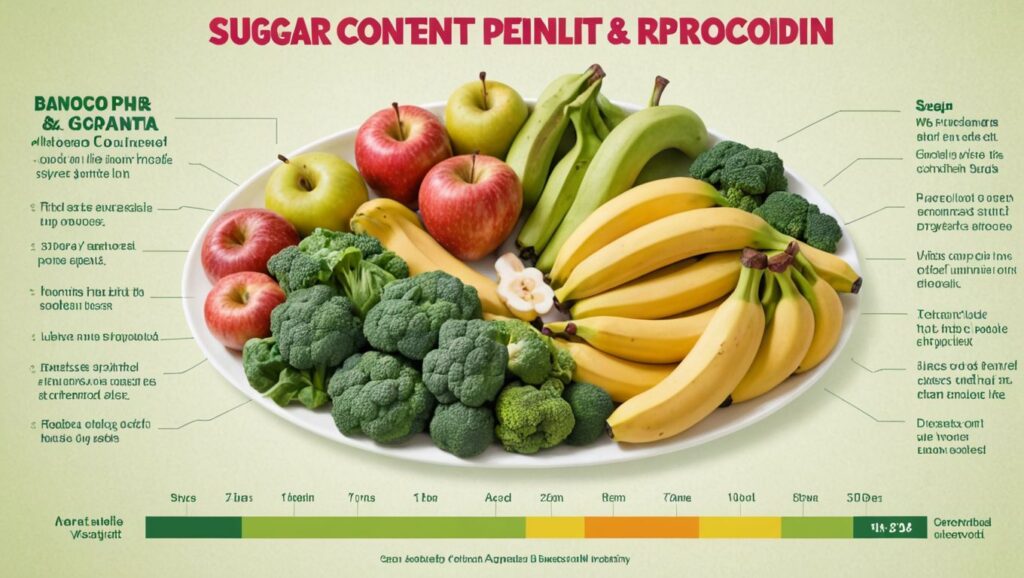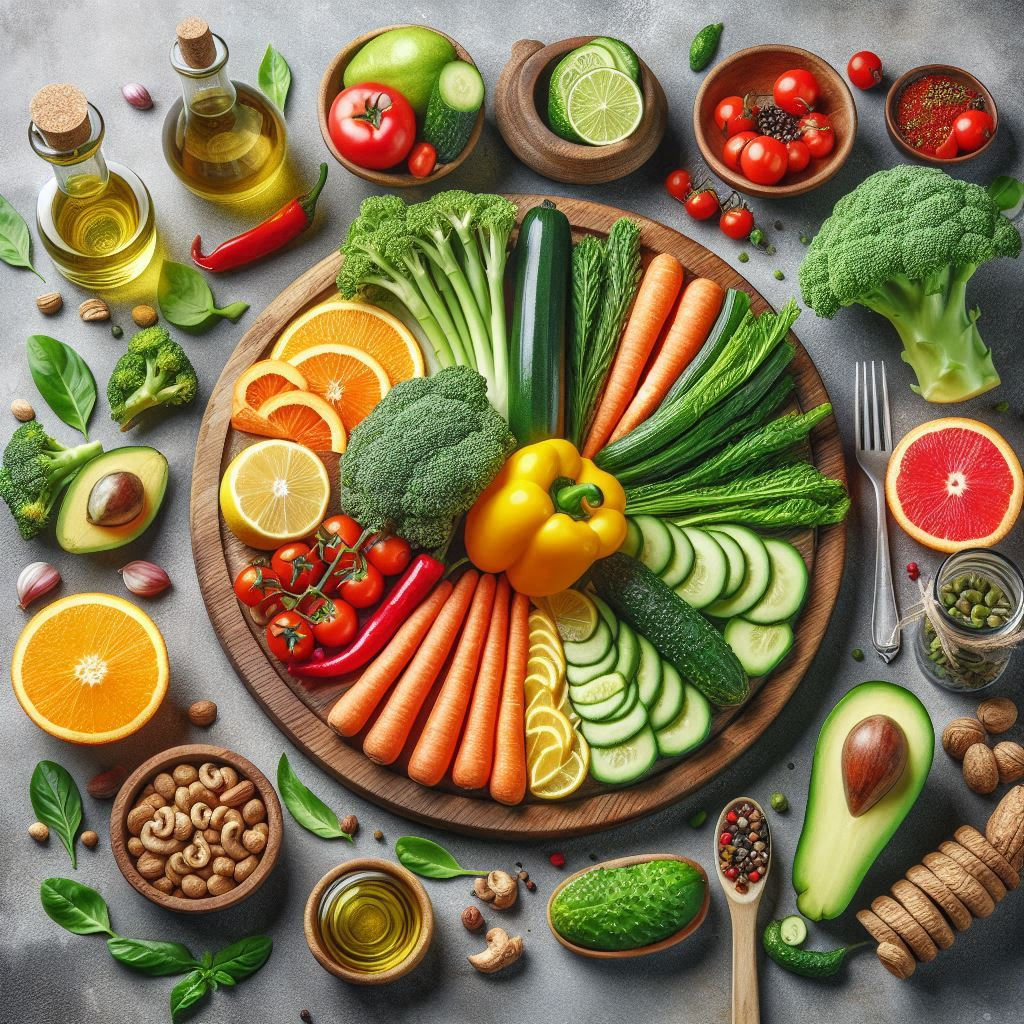Explore the health advantages of fresh produce in our guide to enhance your well-being and nurture your mind, body, and soul.

Table of Contents

Reason 1: Higher Nutrient Density
In the ongoing debate of fruits vs fresh produce, it’s important to understand the unique benefits each brings to the table. While both are essential components of a healthy diet, vegetables often have an edge when it comes to certain health benefits. In this article, we delve into seven compelling reasons why these foods may be superior to fruits for better health, helping you make informed dietary choices.
A balanced diet is crucial for maintaining optimal health, providing your body with the necessary nutrients to function effectively. Incorporating a variety of vegetables into your meals can offer a wealth of health advantages, from boosting nutrient intake to supporting digestive health. Let’s explore why vegetables might be the better choice for enhancing your well-being.
Reason 1: Higher Nutrient Density
When comparing the nutrient density of fresh produce and fruits, vegetables often come out on top. Nutrient density refers to the concentration of essential vitamins, minerals, and other beneficial compounds in a given amount of food. Foods like kale, spinach, and broccoli are packed with micronutrients that are vital for overall health.
- Kale: Rich in vitamins A, C, and K, as well as calcium and iron.
- Spinach: High in folate, iron, and magnesium.
- Broccoli: Contains vitamins C and K, fiber, and potassium.
These nutrient-dense vegetables provide more vitamins and minerals per calorie compared to many fruits, making them an excellent choice for those looking to maximize their nutrient intake.

Reason 2: Lower Sugar Content
One of the significant differences between fruits and vegetables is their sugar content. Fruits, while nutritious, often contain higher amounts of natural sugars. For instance, a medium apple has about 19 grams of sugar, while a cup of strawberries contains around 7 grams.
In contrast, these foods generally have lower sugar levels. For example:
- Spinach: Less than 1 gram of sugar per cup.
- Broccoli: About 2 grams of sugar per cup.
- Carrots: Approximately 6 grams of sugar per cup.
Lower sugar intake is beneficial for several reasons:
- Blood Sugar Control: Helps maintain stable blood sugar levels, reducing the risk of insulin resistance and type 2 diabetes.
- Weight Management: Lower sugar consumption can aid in weight management and prevent excessive calorie intake.
By choosing fresh produce over fruits, you can enjoy the health benefits of essential nutrients without the added sugar, promoting better overall health.

Reason 3: Rich in Fiber
Fiber is an essential component of a healthy diet, aiding digestion and supporting gut health. Fresh produce is often higher in fiber compared to fruits, making them an excellent choice for promoting regular bowel movements and preventing constipation.
- Artichokes: One of the highest fiber-containing vegetables, with about 10 grams of fiber per medium artichoke.
- Brussels Sprouts: Approximately 4 grams of fiber per cup.
- Sweet Potatoes: Around 4 grams of fiber per medium sweet potato.
Fiber has several health benefits:
- Digestive Health: Helps maintain a healthy digestive system by promoting regular bowel movements and preventing constipation.
- Heart Health: High fiber intake is associated with a lower risk of heart disease by reducing cholesterol levels.
- Weight Management: Fiber helps you feel full longer, reducing overall calorie intake and aiding in weight management.
Incorporating fiber-rich fresh produce into your diet can enhance digestive health and support overall well-being, making them a superior choice to fruits in this regard.
Reason 4: Variety of Vitamins and Minerals
Vegetables are a powerhouse of essential vitamins and minerals that are crucial for maintaining overall health. Some of the key vitamins and minerals found in vegetables include:
- Vitamin A: Found in carrots, sweet potatoes, and kale. It’s essential for eye health, immune function, and skin health.
- Vitamin C: Abundant in bell peppers, broccoli, and Brussels sprouts. It’s vital for collagen production, immune support, and antioxidant protection.
- Vitamin K: Present in leafy greens like spinach, kale, and Swiss chard. It plays a critical role in blood clotting and bone health.
- Folate (Vitamin B9): Found in vegetables like spinach, asparagus, and Brussels sprouts. It’s important for cell division and DNA synthesis.
- Iron: Present in spinach, lentils, and chickpeas. It’s essential for oxygen transport in the blood.
- Calcium: Found in collard greens, bok choy, and broccoli. It’s crucial for bone health and muscle function.
- Magnesium: Abundant in spinach, Swiss chard, and black beans. It’s involved in over 300 enzymatic reactions in the body.
When compared to fruits, fresh produce often offers a broader variety of these essential nutrients. While fruits like oranges and strawberries are rich in vitamin C, and bananas provide potassium, they may not offer the same diverse range of vitamins and minerals that vegetables do.
Reason 5: Antioxidants and Phytochemicals
Antioxidants and phytochemicals are compounds that help protect the body from oxidative stress and inflammation. Fresh produce is known for its high antioxidant content, which can be higher than that of many fruits.
- Antioxidants in Vegetables:
- Beta-carotene: Found in carrots, sweet potatoes, and squash. It’s converted into vitamin A in the body and supports eye health.
- Lutein and Zeaxanthin: Present in leafy greens like kale and spinach. They help protect the eyes from harmful blue light and reduce the risk of macular degeneration.
- Sulforaphane: Found in cruciferous vegetables like broccoli, Brussels sprouts, and cabbage. It has potent anti-inflammatory and anticancer properties.
- Flavonoids: Abundant in vegetables like onions, bell peppers, and spinach. They have anti-inflammatory and antioxidant effects.
Fruits also contain antioxidants, but the types and amounts can differ:
- Vitamin C: Found in high amounts in citrus fruits, strawberries, and kiwis.
- Quercetin: Present in apples, berries, and grapes. It has anti-inflammatory properties.
- Anthocyanins: Found in berries like blueberries, blackberries, and raspberries. They have strong antioxidant effects.
While both fruits and vegetables provide antioxidants, the unique phytochemicals found in vegetables can offer additional health benefits that are not as prominent in fruits.
Reason 6: Lower Caloric Density
Vegetables generally have lower calorie counts compared to fruits, which makes them an excellent choice for those looking to manage their weight and overall caloric intake. Here’s a comparison of the caloric content of some common vegetables and fruits:
- Vegetables:
- Spinach: About 7 calories per cup.
- Broccoli: Approximately 55 calories per cup.
- Carrots: Around 50 calories per cup.
- Tomatoes: Roughly 22 calories per medium tomato.
- Fruits:
- Apples: About 95 calories per medium apple.
- Bananas: Approximately 105 calories per medium banana.
- Grapes: Around 62 calories per cup.
- Oranges: Roughly 62 calories per medium orange.
The benefits of a lower caloric intake include:
- Weight Management: Lower calorie foods can help you feel full while consuming fewer calories, aiding in weight loss and maintenance.
- Reduced Risk of Chronic Diseases: Lower caloric intake is associated with a reduced risk of conditions like heart disease, type 2 diabetes, and certain cancers.
- Better Energy Levels: A diet rich in low-calorie vegetables can provide sustained energy without the blood sugar spikes that higher-calorie, sugary fruits may cause.
By incorporating more vegetables into your diet, you can enjoy the benefits of a nutrient-dense, low-calorie food that supports weight management and overall health.
Reason 7: Versatility in Diet
Vegetables offer incredible versatility in meals, making them easy to incorporate into a wide variety of dishes. From salads and soups to stir-fries and smoothies, vegetables can be used in numerous ways to add flavor, texture, and nutrients to your meals.
- Salads: Leafy greens like spinach, kale, and lettuce can form the base of a nutritious salad. Adding vegetables like bell peppers, cucumbers, tomatoes, and carrots provides color, crunch, and a variety of nutrients.
- Soups: Vegetables like carrots, celery, onions, and potatoes are commonly used in soups and stews. They add depth of flavor and essential nutrients to these comforting dishes.
- Stir-Fries: Vegetables such as broccoli, bell peppers, snap peas, and mushrooms are perfect for stir-fries. Their quick cooking time ensures they retain their nutrients and vibrant colors.
- Roasting: Roasting vegetables like Brussels sprouts, sweet potatoes, and cauliflower brings out their natural sweetness and enhances their flavors.
- Smoothies: Vegetables like spinach, kale, and cucumber can be blended into smoothies for a nutrient-packed beverage. Pairing them with fruits can balance the flavors and create a delicious drink.
- Baking: Vegetables like zucchini, carrots, and beets can be incorporated into baked goods, adding moisture and nutrients to breads, muffins, and cakes.
While fruits are also versatile, they are typically consumed raw or used in desserts, smoothies, and breakfast dishes. Their higher sugar content makes them a popular choice for sweet treats, but they may not offer the same variety of cooking methods as vegetables.
- Raw: Fruits like apples, oranges, and berries are often eaten raw as snacks.
- Desserts: Fruits such as strawberries, peaches, and bananas are commonly used in desserts like pies, cakes, and ice creams.
- Smoothies: Fruits like bananas, berries, and mangoes are popular smoothie ingredients.
- Breakfast: Fruits like berries, bananas, and melons are often added to breakfast dishes like yogurt, oatmeal, and pancakes.
While fruits are delicious and versatile, vegetables offer a wider range of culinary possibilities, making it easier to incorporate them into different types of meals.
Conclusion
In summary, vegetables hold a distinct advantage over fruits in several key areas when it comes to promoting better health. Their higher nutrient density, lower sugar content, rich fiber, variety of vitamins and minerals, enough of antioxidants and phytochemicals, lower caloric density, and incredible versatility in meals make them a superior choice for enhancing overall well-being.
By including more fresh produce in your diet, you can enjoy the numerous health benefits they offer, from improved nutrient intake and digestion to better blood sugar control and weight management. Embrace the versatility and nutritional power of vegetables, and make them a staple in your meals for a healthier, more balanced diet.



